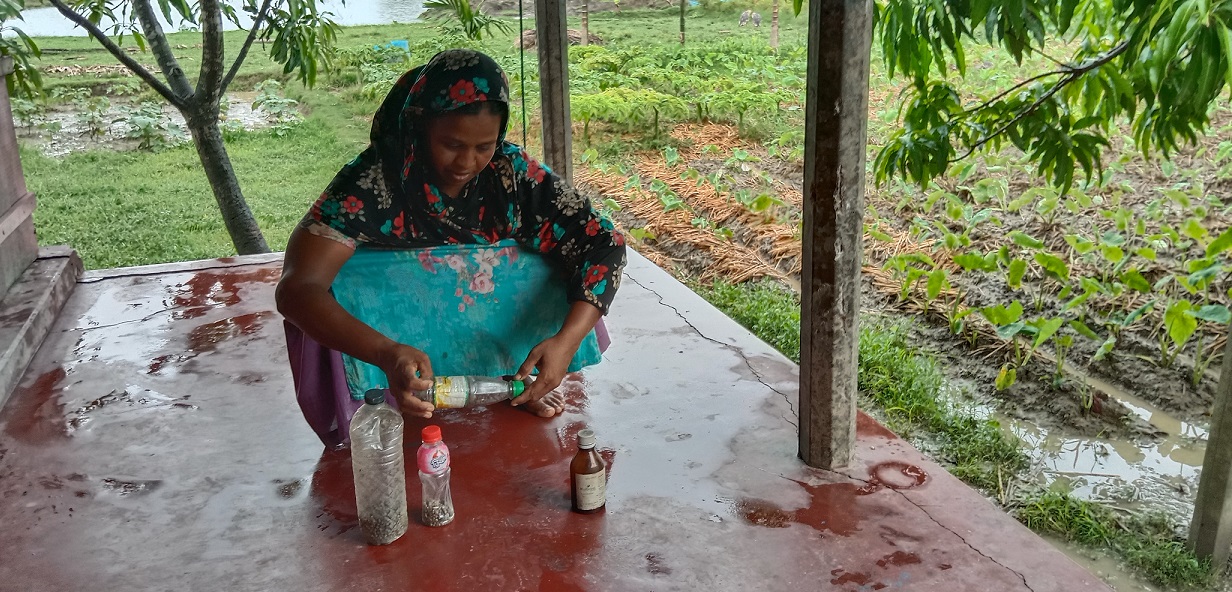By Champa Mallik, from Shyamnagar, Satkhira
In the southwest coastal region of Bangladesh, where the challenges of saline water, frequent cyclones, and livelihood uncertainty are part of everyday life people continue to struggle with the soil, sowing new seeds of hope. Women of this region are no exception; alongside managing their households, they labor tirelessly in the fields, nurturing their own dreams.
One such woman is 37-year-old Rojina Begum from Majher Ait village of Burigoalini Union in Shyamnagar upazila, Satkhira. From childhood, she felt a deep bond with the scent of soil. But household responsibilities and lack of space kept her dreams suppressed for years. While living at her father’s home, she had the desire to farm, but limited land never allowed her to pursue it.

Her husband, Mannan Dhali (42), is a day laborer, and together they have a five-year-old son. Their homestead of 1 bigha 8.25 decimals was purchased jointly by Rojina’s siblings and husband. After settling there, Rojina began farming independently. With relatives living far away, her own initiative became her greatest strength. She makes every decision herself such as what to cultivate, how to prepare the land, when to plant, and how to care for crops. Her husband supports her whenever he has time after work. For Rojina, this independence is the greatest source of strength and inspiration.
In 2025, after joining BARCIK’s Shotobari (Hundred Homesteads) program, she received advice and encouragement to use her homestead and nearby plots more effectively. She transformed them into a lush green haven filled with rows of vegetables, colorful flowers, ducks, chickens, cows, and goats that turns her home into a vibrant mini farm. She also took an interest in seed conservation and, this year, started cultivating rice for the first time. At dawn, she can be seen with a hoe in hand or carrying rice seedlings on her shoulder. Preparing the land, watering the crops, removing weeds- all these tasks she performs with love. For her, farming is not just a livelihood; it is her freedom, her pride, and the essence of her identity.
Rojina believes that the joy of harvesting crops grown with her own hands is incomparable. The freedom to cultivate in her own way is her greatest achievement. Her initiative not only makes her family more self-reliant but also inspires other women in the village. Her story proves that having soil, spirit, and hard work there are no limits to a woman’s dreams.
